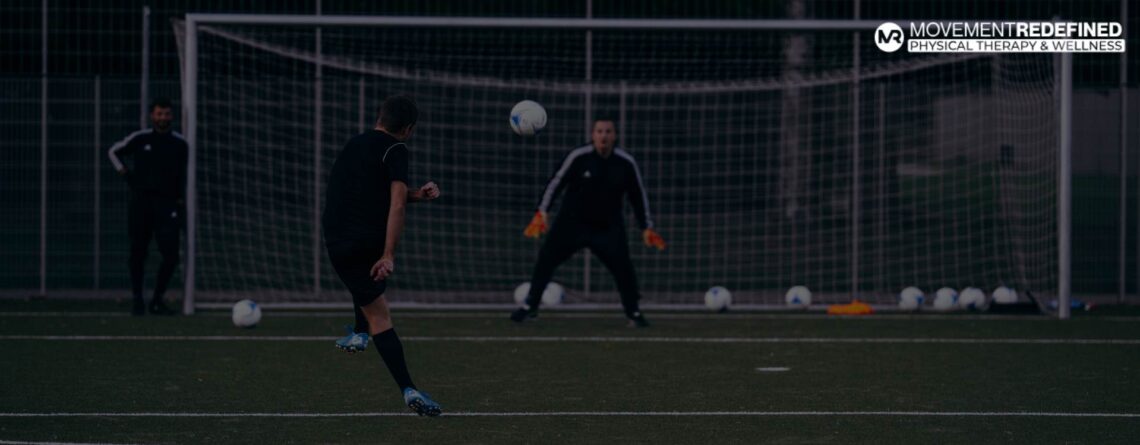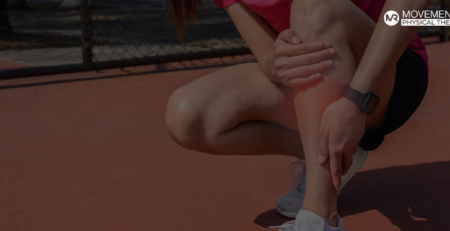Back in the Game: Sports-Specific Physical Therapy Movement Redefined
Participating in sports and physical activities can be incredibly rewarding, but it also comes with the risk of sports-related injuries. These injuries can be frustrating, affecting not only an athlete’s performance but also their overall well-being. Fortunately, there is a place that understands the unique needs of athletes and is dedicated to helping them recover, prevent future injuries, and excel in their respective sports. Welcome to Movement Redefined, where specialized sports-specific physical therapy programs in Phoenix are designed to get athletes back in the game stronger than ever.
Understanding Sports-Related Injuries
Sports-related injuries can manifest in various ways, affecting muscles, ligaments, tendons, bones, and joints. These injuries can occur due to factors such as contact with other players, overuse of a specific body part, improper technique, inadequate warm-up or conditioning, or accidents during play. From sprains and strains to fractures and tendinitis, these injuries can lead to pain, swelling, limited range of motion, instability, and decreased athletic performance.
Common Sports-Related Injuries
Sprains
Ligament sprains occur when the ligaments that connect bones and stabilize joints are stretched or torn. Ankle sprains are particularly common in sports.
Strains
Muscle strains happen when muscles or tendons are stretched or torn. Hamstring strains and groin strains are examples of common muscle strains in sports.
Fractures
Fractures refer to broken bones, which can occur due to high-impact collisions, falls, or repetitive stress on the bones.
Knee Injuries
Knee injuries, such as anterior cruciate ligament (ACL) tears, meniscus tears, or patellofemoral pain syndrome (runner’s knee), are common in sports that involve quick direction changes, pivoting, or jumping.
Tendinitis
Tendinitis is the inflammation of a tendon, often caused by repetitive movements or overuse. Tennis elbow and Achilles tendinitis are common examples.
Overuse Injuries
Overuse injuries occur due to repetitive stress on a particular body part or joint. They can include conditions like tennis elbow, golfer’s elbow, shin splints, or stress fractures.
The Role of Physical Therapy in Sports-Related Injuries: A Pathway to Optimal Recovery
Participating in sports and physical activities can be incredibly fulfilling, offering a sense of achievement, camaraderie, and personal growth. However, the high-intensity nature of sports also comes with the risk of injuries. Sports-related injuries can range from minor sprains to more severe fractures, and they can impact athletes of all ages and skill levels. When an injury occurs, prompt and appropriate treatment is essential to promote healing, prevent further complications, and help athletes regain their peak performance. Physical therapy plays a pivotal role in the recovery process, providing athletes with the specialized care they need to get back in the game stronger than ever.
Reducing Pain and Inflammation
One of the primary objectives of physical therapy in sports-related injuries is to alleviate pain and reduce inflammation. After an injury, athletes often experience pain and discomfort, which can hinder their ability to move freely and participate in sports activities. Physical therapists at Movement Redefined employ various techniques and modalities to manage pain effectively. These may include the use of heat or cold therapy, electrical stimulation, ultrasound, and manual therapy. By targeting the source of pain and inflammation, physical therapy aims to improve an athlete’s comfort level and lay the foundation for successful rehabilitation.
Restoring Flexibility and Range of Motion
Injuries can lead to a decrease in flexibility and limited range of motion in the affected area. For example, a sprained ankle might result in reduced ankle mobility, hindering an athlete’s ability to perform certain movements and compromising their overall athletic performance. Physical therapists at Movement Redefined are experts in designing tailored exercise programs that focus on stretching and mobilizing injured joints and muscles. By gradually increasing the range of motion, physical therapy helps athletes regain their flexibility and restore normal movement patterns.
Rebuilding Strength and Stability
In the aftermath of a sports-related injury, muscles can weaken due to immobility and disuse. Additionally, the injured area might become unstable, increasing the risk of re-injury. Strengthening exercises are a fundamental aspect of physical therapy, as they help athletes rebuild strength, enhance stability, and regain control over their bodies. Movement Redefined’s dedicated physical therapists carefully craft progressive rehabilitation programs that challenge athletes at the appropriate level. Through targeted exercises and strength training, athletes can reclaim their athletic prowess and reduce the likelihood of future injuries.
Improving Functional Performance
Athletes require a high level of functional performance to excel in their chosen sports. Whether it’s running, jumping, pivoting, or throwing, each movement involves a complex interplay of muscles and joints. Physical therapy at Movement Redefined takes a functional approach to rehabilitation, tailoring treatment plans to address an athlete’s specific athletic needs. By focusing on functional exercises and movements that mimic the demands of their sport, athletes can regain their competitive edge and confidence.
Preventing Future Injuries
Beyond recovery, physical therapy at Movement Redefined places a strong emphasis on injury prevention. Athletes are educated on proper biomechanics, body mechanics, and movement patterns relevant to their sports. By understanding and implementing correct techniques, athletes can minimize the risk of re-injury and optimize their performance. Movement Redefined’s physical therapists work closely with athletes to develop customized injury prevention strategies, ensuring their continued success in sports.
How Movement Redefined Helps With Sports-Related Injuries
Individualized Treatment Plans
At Movement Redefined, physical therapists conduct thorough evaluations to develop personalized treatment plans tailored to an athlete’s specific needs. These plans address muscle imbalances, joint instability, range of motion limitations, and functional deficits, ensuring targeted and effective rehabilitation.
Manual Therapy Techniques
The clinic’s highly skilled physical therapists employ hands-on techniques to improve joint mobility, reduce pain, and enhance tissue healing. Manual therapy is a valuable component of the treatment process, aiding in restoring function and promoting recovery.
Modalities for Pain Relief and Healing
Movement Redefined utilizes various modalities such as heat or cold therapy, electrical stimulation, ultrasound, and therapeutic taping to alleviate pain, reduce inflammation, and promote tissue healing.
Education on Proper Mechanics and Movement
Athletes receive valuable education on correct body mechanics, movement patterns, and injury prevention strategies to minimize the risk of re-injury and improve overall performance.
Progressive Rehabilitation Programs
The physical therapy programs at Movement Redefined are designed to gradually progress an athlete’s rehabilitation, ensuring a safe and effective return to sports activities.
Get Back in the Game: Conclusion
Sports-related injuries can be both physically and mentally challenging for athletes. With Movement Redefined’s specialized sports injury physical therapy treatments in Phoenix, athletes can expect evidence-based techniques and personalized care to address the root causes of their conditions and facilitate healing. Through a holistic approach to treatment, combining cutting-edge techniques with individualized care, Movement Redefined aims to provide long-lasting relief and enhance athletes’ overall athletic performance and wellness. So, if you’re an athlete looking to get back in the game stronger than ever, Movement Redefined is here to help you on your journey to recovery and excellence.

